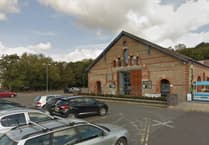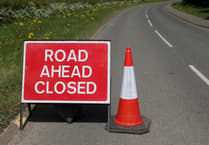Proposed cuts to local bus services – due to come into effect on 30th January 2022 – have been mitigated following intensive work between local authorities and bus companies and will see services such as the 178, which runs between Radstock, Keynsham and Bristol, retained. The plan had been made to remove the 178 service and replace it with number 172 between Radstock and Keynsham; people would then have had to change to the 349 to get into Bristol.
Whilst some proposed cuts have been cancelled, some other local services will see amended routes, stops and timetables.
The Lib Dems have been warning that local bus operators still face difficulties from the continuing impact of the pandemic and the end of Government financial support in April.
They say they have been pressing the West of England Combined Authority (WECA) to adopt an ambitious Bus Service Improvement Plan, lobbying Government and highlighting the powers and funding needed to improve services.
Councillor Sarah Warren,
Cabinet member for Climate and Sustainable Transport, said: “We’ve been working hard with the West of England Combined Authority and with First Bus to minimise the impact of proposed bus service changes this month.
“We’re pleased that the timetable changes have been revised from the initial proposals and that some vital services, such as the numbers 8 and 178 buses, have been protected.
“However, the fact remains that local bus services are still struggling, due to the pandemic and the lack of passenger confidence and Government support to operators is still due to end in three months.
“We have called for the Government to continue funding the Bus Recovery Grant beyond March 2022 or else introduce a new funding scheme to support bus operators during the next phase of the pandemic.
“So many people rely on a safe, reliable bus to access shops, services, employment, and education, yet the Council has no direct control over services.
“We will continue to fight for our local buses, working with WECA and the Mayor to protect vital community and rural services as well as lobbying Government for necessary funding to support bus services through the pandemic.”
Councillor Dine Romero, Cabinet member responsible for public health, added: “It’s a legal requirement for passengers on public transport to wear a face covering, unless exempt. However, there is evidence that many people are not doing so, putting potential passengers off.
“We’re repeating our call for residents to wear their masks and help keep themselves and others safe on public transport.”
Wera Hobhouse, MP for Bath, said: “I’m pleased that some cuts have been mitigated thanks to the work of Bath and North East Somerset Council and the bus companies. The Government must now step up to prevent further cuts to important routes across Bath and North East Somerset. The Transport Minister has so far refused to accept the correct passenger numbers.
“She has refused to engage in helping to stop the cuts to buses in Bath and I will continue to lobby to keep our buses.”
Metro Mayor Dan Norris has previously called on the Government to provide greater support for bus services as Covid pressures have lead to some services being under threat.
He said: “I know just how important the 178 service is – it provides a vital direct link between some of the rural and semi-rural communities in North East Somerset and the centre of Bristol. Places like Radstock, Midsomer Norton and Paulton deserve a regular direct bus service.
“Maintaining these bus routes is a real priority for the West of England Combined Authority, which I lead. So while I’m delighted to retain the number 178, I’m also aware there isn’t a bottomless pot of money.
“I am well aware of the pressures that Covid is placing on our bus services, that’s why I’ve been calling on the Government to step up to the plate and provide the funding shot in the arm to help retain bus services for other communities.”




Comments
This article has no comments yet. Be the first to leave a comment.